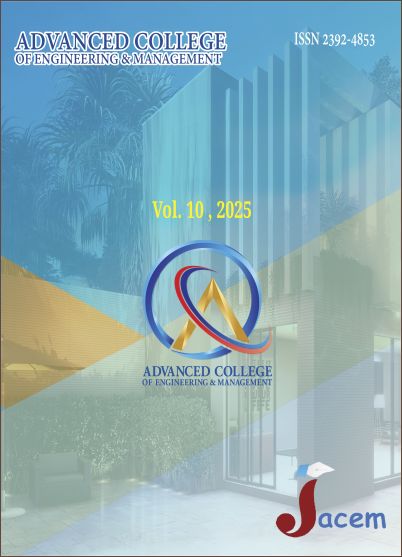Experimental Analysis of Mechanical and Physical Properties of Hexagonal Paver Block using Plastic Polymer as a Binder
DOI:
https://doi.org/10.3126/jacem.v10i1.76321Keywords:
Paver Blocks, Polyethylene Terephthalate (PET), Compressive Test, Bulk Density, Water absorptionAbstract
Nepal faces significant challenges in solid waste management, especially with non-biodegradable plastic waste. Recycling and reusing plastic waste as construction material can help reduce its impact significantly. This study evaluates the mechanical and physical properties of paver blocks bonded with waste polymer, specifically Polyethylene Terephthalate (PET), by varying the PET-to-sand proportions. Fifty-four hexagonal block samples were made by applying 100 bars of pressure in a hydraulic press machine. PET and sand were mixed in the following proportions: 15:85, 20:80, 25:75, 30:70, 35:65, and 40%. The compressive strength after 7 days and 14 days varied between 15.51 MPa to 33.47 MPa and 15.72 MPa to 35.54 MPa, respectively. And the compressive strength ranged between 18.27 MPa and 33.73 MPa after 14 days, with the temperature effect. With increasing PET proportion, the bulk density varied from 1886.772 kg/m3 to 2144.974 kg/m3. And the water absorption varied from 1.42 to 4.46. The outcome shows that the compressive strength of paver blocks rises with an increase in PET percentage up to 25%, after which the compressive strength decreases. When the proportion of PET rises, bulk density and water absorption both falls.
Downloads
Downloads
Published
How to Cite
Issue
Section
License
JACEM reserves the copyright for the published papers. Author will have right to use content of the published paper in part or in full for their own work.




